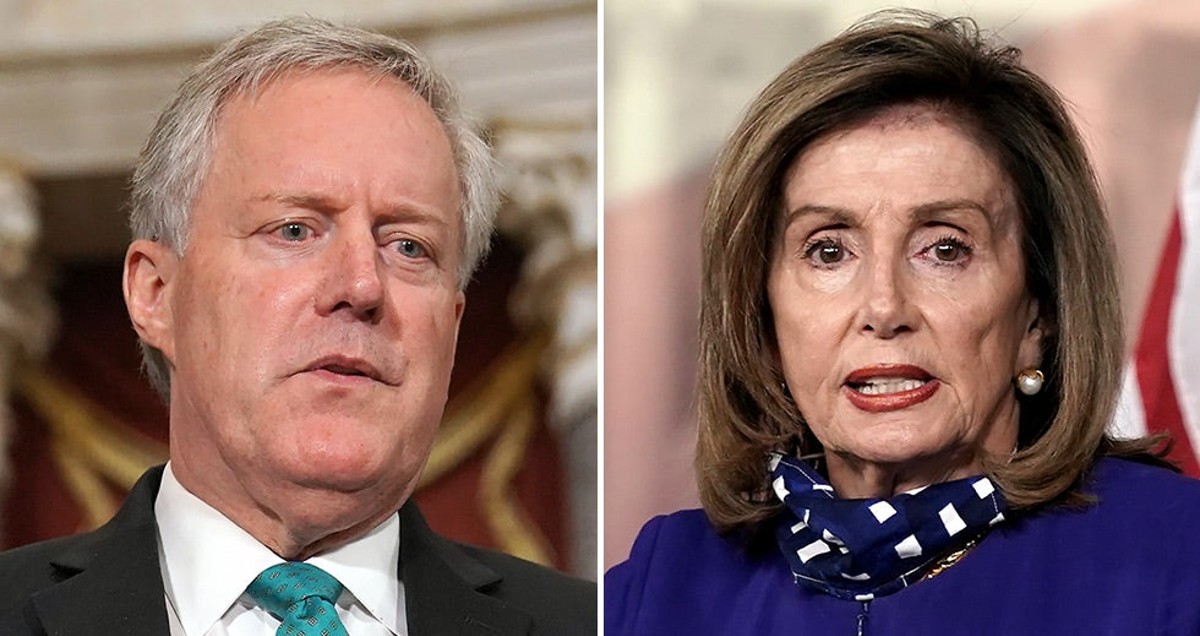OPINION: This article may contain commentary which reflects the author's opinion.
Former Trump Chief of Staff Mark Meadows is no longer cooperating with the Democrat-run Jan. 6 Committee, according to reports that cited a letter from his attorney.
“We agreed to provide thousands of pages of responsive documents and Mr. Meadows was willing to appear voluntarily, not under compulsion of the Select Committee’s subpoena to him, for a deposition to answer questions about non-privileged matters. Now actions by the Select Committee have made such an appearance untenable,” the letter from George J. Terwilliger II stated.
“In short, we now have every indication from the information supplied to us last Friday – upon which Mr. Meadows could expect to be questioned — that the Select Committee has no intention of respecting boundaries concerning Executive Privilege,” Terwilliger added.
Meadows’ decision to stop cooperating is due in part to learning over the weekend that the committee had “issued wide ranging subpoenas for information from a third party communications provider,” the letter says.
“As a result of careful and deliberate consideration of these factors, we now must decline the opportunity to appear voluntarily for a deposition,” Terwilliger writes.
Initially, the former chief of staff agreed to report for an initial interview, CNN, who first broke the story on Tuesday, reported.
“Mr. Meadows has been engaging with the Select Committee through his attorney,” Democratic Mississippi Rep. Bennie Thompson the chair of the committee, said in a statement to CNN. “He has produced records to the committee and will soon appear for an initial deposition. The Select Committee expects all witnesses, including Mr. Meadows, to provide all information requested and that the Select Committee is lawfully entitled to receive. The Committee will continue to assess his degree of compliance with our subpoena after the deposition.”
The network reported:
Meadows’ lawyer George Terwilliger said in a statement to CNN that there is now an understanding between the two parties on how information can be exchanged moving forward, stating that his client and the committee are open to engaging on a certain set of topics as they work out how to deal with information that the committee is seeking that could fall under executive privilege.
But the agreement could be fragile if the two sides do not agree on what is privileged information. News of the understanding comes as Trump’s lawyers argued in front of a federal appeals court in Washington that the former President should be able to assert executive privilege over records from the committee.
“As we have from the beginning, we continue to work with the Select Committee and its staff to see if we can reach an accommodation that does not require Mr. Meadows to waive Executive Privilege or to forfeit the long-standing position that senior White House aides cannot be compelled to testify before Congress,” the attorney said. “We appreciate the Select Committee’s openness to receiving voluntary responses on non-privileged topics.”
Democratic Rep. Pete Aguilar agreed that Meadows could have a “minor claim” to executive privilege, but that claim would not include questions that the committee has for him that “have nothing to do with the conversations he had directly with the President.”
“His conversations about stopping a free and fair election, about criticizing and stopping the counting of electoral votes, about his coordination with campaign officials on private devices that were not turned over, all of those issues are not privilege worthy and he has some explaining to do,” he said.
Republicans have blasted the committee for what they see as blatant partisanship, especially after House Speaker Nancy Pelosi, D-Calif., refused to seat certain GOP members recommended to her by Minority Leader Kevin McCarthy, R-Calif., leading him to pull all names.
Only two — Reps. Liz Cheney and Adam Kinzinger — decided to sit on the committee, and both of them are anti-Trump Republicans.
